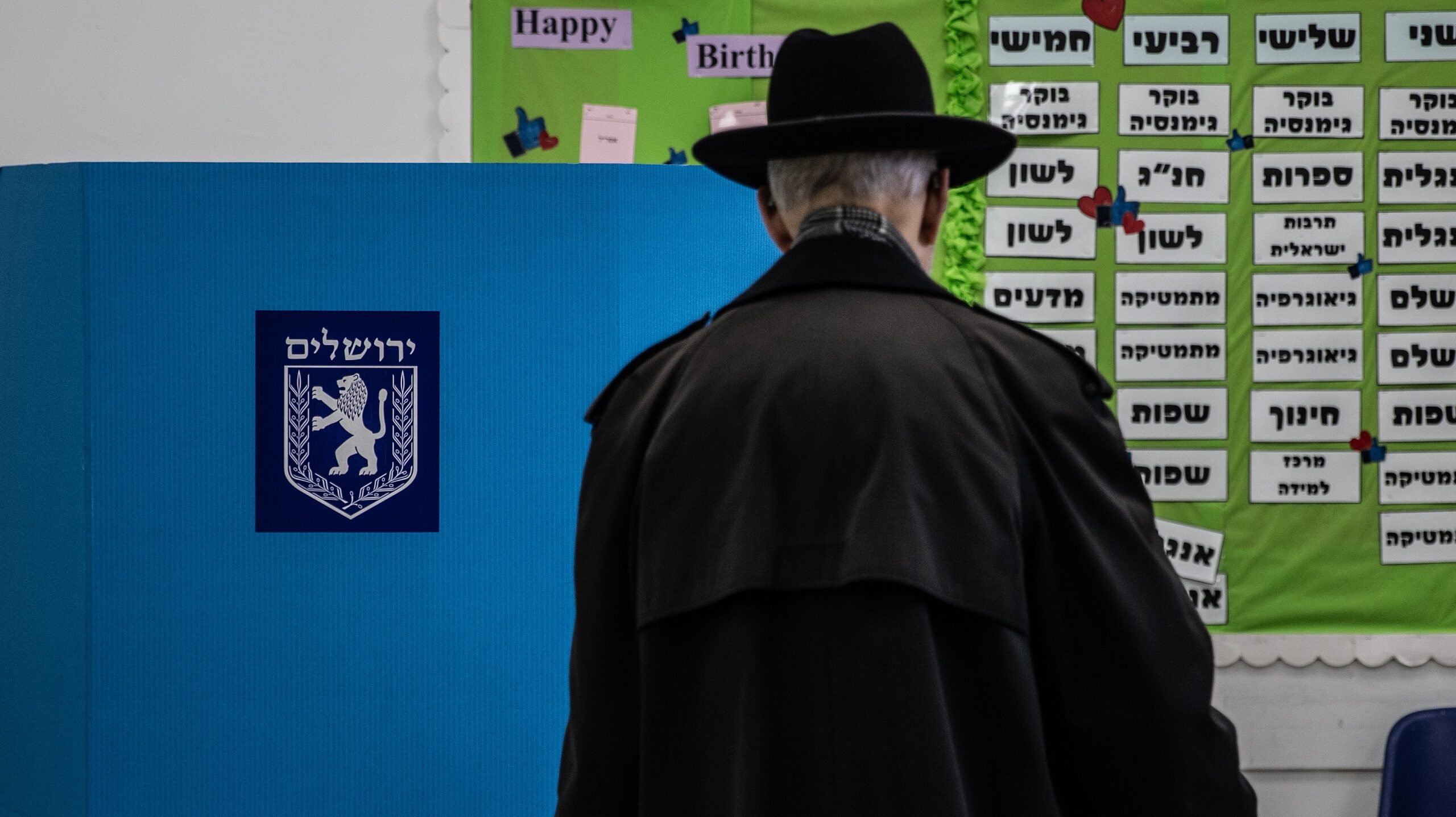A Tale of Two Jerusalems: Secular Unease Rising as Ultra-Orthodox Take City Council Majority
In a landmark election, ultra-Orthodox parties win over half the seats in Jerusalem’s City Council, indicating a potential change in the city’s governance
Municipal elections in Jerusalem resulted in an unprecedented victory for ultra-Orthodox—or Haredi—parties, with these factions securing just over half of the 31 seats in the city’s legislative body, marking the largest ultra-Orthodox takeover of the Jerusalem City Council in recent years.
Jerusalem is more secular today than ever before
But Haredi Institute for Public Affairs Fellow Meir Hirshman asserts: “Jerusalem is more secular today than ever before.”
“There are many more shops and restaurants that are open on Shabbat and nonkosher restaurants that operate in the city,” Hirshman, who served as a senior assistant to former Deputy Welfare Minister Rabbi Avraham Ravitz, told The Media Line. “There are more and more ultra-Orthodox people living in the city, so sometimes it turns out that restaurants choose to be kosher because it is convenient for you from a business point of view.”
Yet, the results show the Sephardic Shas party, the Hasidic Agudat Yisrael party, the non-Hasidic ultra-Orthodox Degel Hatorah party, and Bnei Torah—affiliated with the extremist Jerusalem Faction group—now collectively hold 16 seats, meaning the ultra-Orthodox majority on the council now controls key committees, including planning and construction, finance, and education.
This dominance has sparked concerns about the potential for a further exodus of secular residents from Jerusalem, a trend some fear could alter the city’s diverse character. But, according to Hirshman, “There is no drama in the election results.”
[Mayor Moshe Lion] proved in this term—and this is why the seculars supported this time—that he is very balanced
This holiday season, give to:
Truth and understanding
The Media Line's intrepid correspondents are in Israel, Gaza, Lebanon, Syria and Pakistan providing first-person reporting.
They all said they cover it.
We see it.
We report with just one agenda: the truth.
Please support TML's boots on the ground.Donate

He pointed out that Jerusalem reelected Mayor Moshe Lion with the votes of both the ultra-Orthodox and secular communities. “He proved in this term—and this is why the seculars supported this time—that he is very balanced. He does care for the ultra-Orthodox, but not at the expense of the secular. Even in the whole issue of mixed neighborhoods, he finds a way to make everyone happy.”
“There are places where ultra-Orthodox people live in complete peace with their secular neighbors, such as in Pisgat Ze’ev. And there are other places that have a little more tension, such as the Kiryat Hayovel neighborhood.”
“A little more tension” is one way of phrasing it.
In August 2023, Jerusalem’s predominantly secular Kiryat Hayovel neighborhood saw a legal and social showdown over the opening of a new ultra-Orthodox school for girls that was set to replace the Amal Lady Davis School, a secular institution with a focus on technology that had served the community for over four decades.
The Supreme Court’s decision to overturn a district court ruling that blocked the municipal plan added fuel to the fire of an already heated debate as the ruling was perceived by many secular residents as a clear signal of the municipality’s direction under its current leadership, favoring the needs and demands of the ultra-Orthodox community at the expense of the secular population’s wishes and the neighborhood’s historical diversity.
And this is a trend set to continue.
“I think Jerusalemites have to make it clear that ‘No one has the right to tell me where I can’t go,’” Jerusalem City Council Member Laura Wharton, a representative of the Jerusalem Union, told The Media Line. “We’ve had a number of clashes with the ultra-Orthodox about what happens on the weekend, and one thing I absolutely believe in, that we must insist on, is … the right to live according to our rules and our way of life.”
“Just as there are synagogues open on Shabbat, and people go to synagogues, we have to keep the cinemas open and go to cinemas. I think we have to make sure that the freedom of the city is preserved for those who want it.”
When it comes to the separation of religion and state, Fleur Hassan-Nahoum, outgoing deputy mayor of Jerusalem, told The Media Line, “We already lost that battle 10 years ago.”
But she believes there to be hope. “Jerusalem has made incredible strides. We’ve doubled the number of high-tech jobs in the city of Jerusalem, which means young, secular, and modern religious people are staying in the city.”
“Jerusalem is essentially the laboratory of a solution for the future demographic and economic problems of the country,” she continued. “Because as the Arab and the ultra-Orthodox populations get bigger in the country, the country can’t look like Jerusalem in terms of its numbers because we are poor.”
“This is the beta testing site for all of these solutions to these main challenges.”
One thing that these groups have in common is a love for the city, and looking ahead, Wharton says she sees a vision of the future where Jerusalem “continues to be diverse and fascinating.”
Israel was founded as a state that, in its Declaration of Independence, promised, among other things—apart from equality and so forth—it also guaranteed freedom of religion
But, more importantly, “Israel was founded as a state that, in its Declaration of Independence, promised, among other things—apart from equality and so forth—it also guaranteed freedom of religion. And I hope that all the new representatives who will be joining the City Council realize that because, if not, we’re going to have a lot of battles,” Wharton said.

